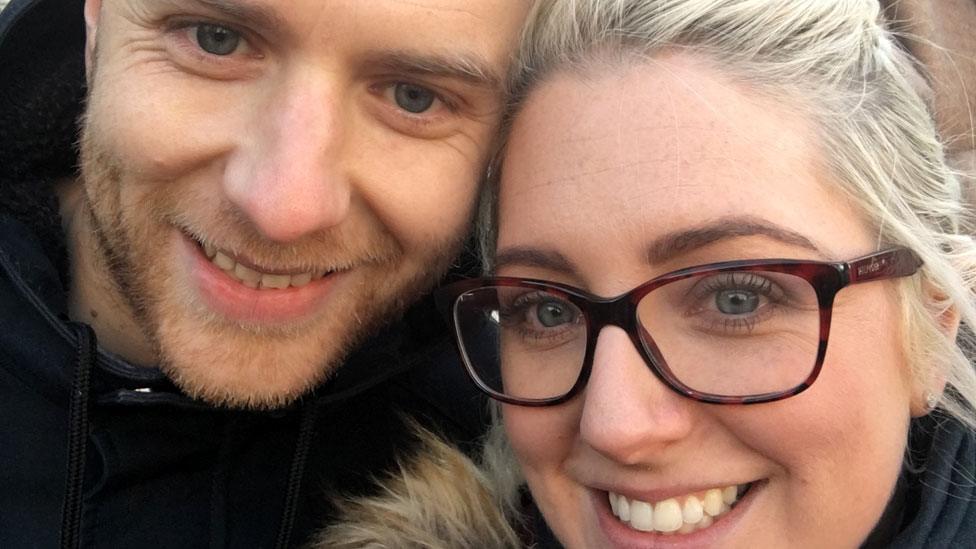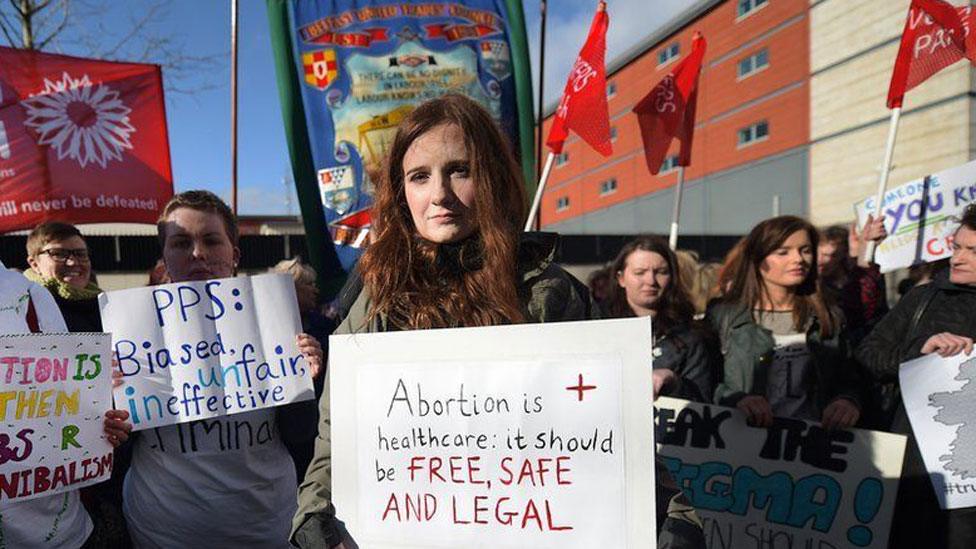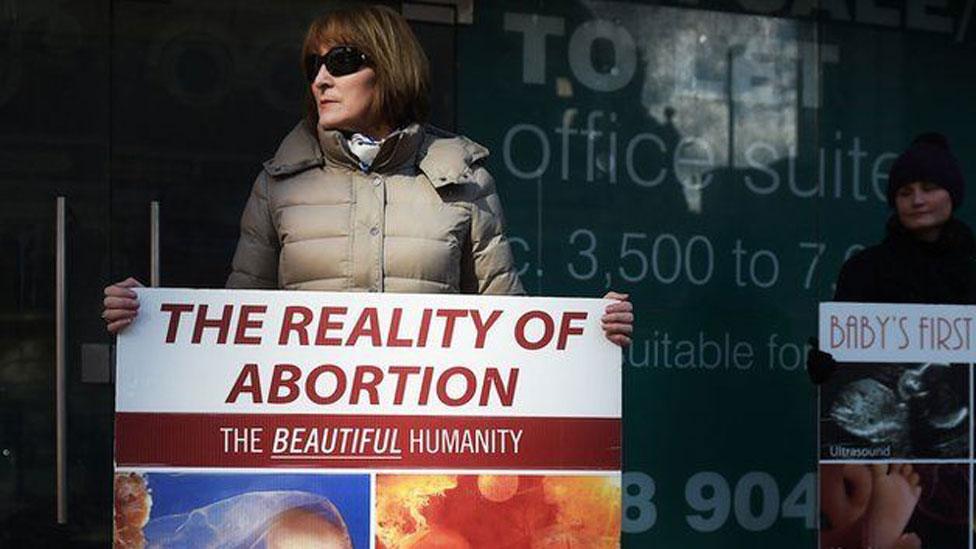'I was forced to carry my baby, knowing she would die'
- Published

Ashleigh Topley was four-and-a-half months pregnant when she found out her baby wouldn't survive outside the womb.
"At that point, my whole world came crashing down," she tells Newsbeat.
At her scan, on Valentine's Day 2013, a consultant was called in and delivered the bad news: the baby's limbs weren't growing properly and it was going to die.
But because Ashleigh, then 27, lives in Northern Ireland, she was told there was nothing to be done.
In the rest of the UK, women whose babies have what doctors call a "foetal abnormality" have the option of a termination. The condition is defined by NI's government as, external: "where death will occur before or during birth or, if a live birth should occur, there is no medical treatment which could be offered to alter the fatal nature of the condition or improve the chances of survival."
In Northern Ireland, abortion is illegal unless the mother's life is at risk or she can prove a permanent or serious risk to her mental or physical health.
Women diagnosed with a foetal abnormality must continue with the pregnancy until either they go into labour - when the baby dies, during or after - or it dies inside the womb.
15 weeks of 'torture'
Ashleigh says she was "totally horrified" when she found out her options.
"I couldn't believe they wanted to put us through the torture of knowing that a baby, our baby, wasn't going to survive, but I was still going to have to be pregnant and continue with the pregnancy for an unknown length of time," she tells Newsbeat, looking back.
That length of time turned out to be another 15 weeks - from February to May 2013.
The British Pregnancy Advisory Service say about 2,700 abortions for all foetal anomalies (including fatal) are recorded each year, external, but the organisation says the real figure is much higher as many thousands more are recorded for a different reason - the mother's health, for example.

People gather in Belfast in support of 21-year-old woman who was given a three-month suspended sentence for buying pills online that induced a miscarriage, in April 2016
'Part of me was wishing for her death'
During those 15 weeks, Ashleigh was often asked about her growing bump in Portadown, where she lives.
"So people, as people do, are very friendly, and ask, 'Oh - when are you due? Do you know if it's a boy or a girl? Are you excited? Is it your first baby?'" Ashleigh says.
"I sort of bottled the truth up inside, and then whenever I got home, I just used to sob and sob, because I couldn't believe what was happening."
Feeling the baby hiccup is supposed to be a delight to expectant mothers, but not for her.
"I was just wishing it would come to an end. And that was extremely difficult, because part of me was wishing for the death of her because we knew that was inevitable," she says.
Eventually, in May 2013, at 35 weeks pregnant, Ashleigh went into labour and the baby's heart stopped.
The day was one of mixed emotions for her and her husband. "All I felt was a massive relief that finally, the 15 weeks of waking up every morning of thinking, 'Will this be the day?'"
They called their baby Katy and finally felt like they could begin grieving.

You can get help with contraception and dealing with pregnancy via these BBC Advice pages.
She wants to bring about a change in the law
Now 30, Ashleigh and her husband Geoff have a one-year-old baby girl called Robyn. She was named after the bird that some say recalls those who have passed away, and Ashleigh says she has helped the whole family heal.
But she has decided to tell her story now to urge politicians to change the law.
Northern Ireland's government collapsed in January and politicians are in the middle of negotiations to try and get things back on track following an election. In the meantime, issues like the abortion law and whether it should be changed, have been put on hold.
Over two thirds of people in Northern Ireland want abortion to be legalised in these cases, according to a 2016 poll of 1,000 people by Amnesty International NI. Seventeen per cent of people surveyed wanted it to stay the same.
Ordering abortion pills online is also illegal. On International Women's Day, police in Northern Ireland carried out abortion pill raids while last April, a 21-year-old was given a three month suspended sentence for ordering pills.
Amnesty International NI's Grainne Teggart told Newsbeat: "Abortion reform is unfinished business and must be prioritised by all political parties in the current talks."
As for Ashleigh, she hadn't considered the law before this experience. And now she wants politicians to consider its impact on women like her.

Pro-life campaigners outside Belfast's Marie Stopes Clinic
'How did I survive that?'
"It has opened my views and eyes to all of the reasons why people may want or need a termination," she says.
"I would like to say to Northern Ireland's politicians that you need to trust women to have control of our own bodies."
She has moved on and says her baby daughter is "a delight". But she doesn't want anyone to have to go through what she did.
"Honestly, sometimes I take stock and think, 'How on earth did I survive that?'"
Find us on Instagram at BBCNewsbeat, external and follow us on Snapchat, search for bbc_newsbeat, external